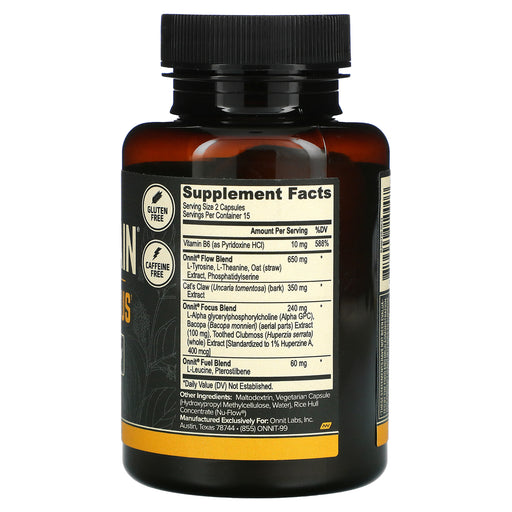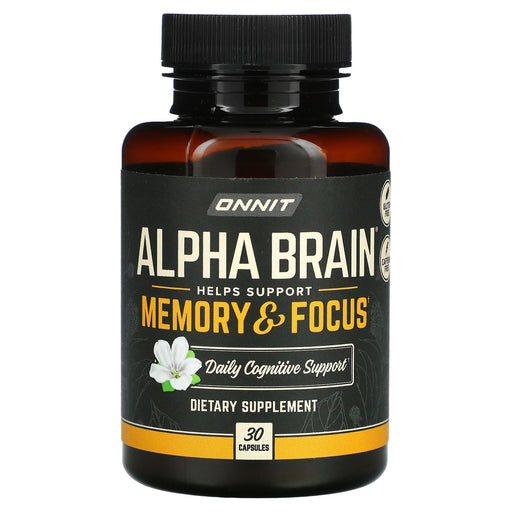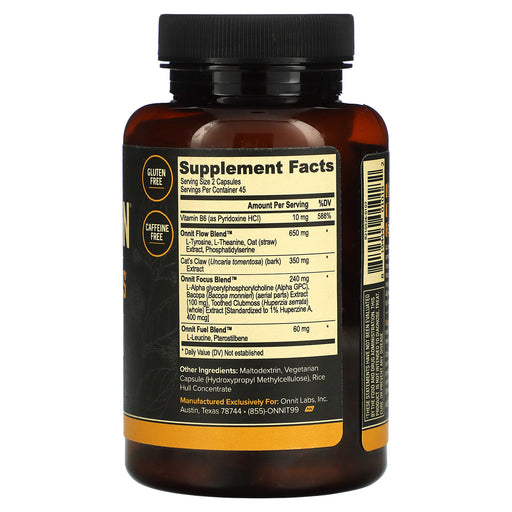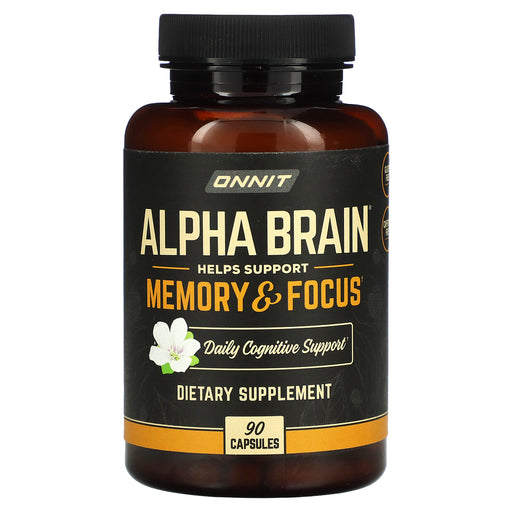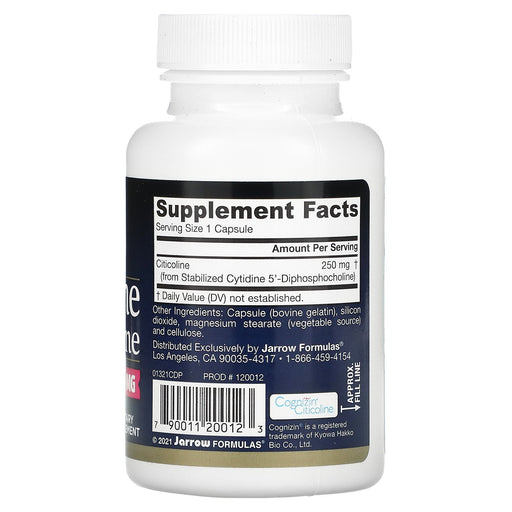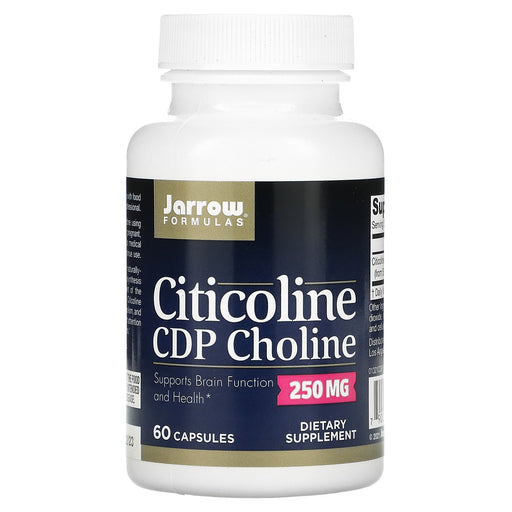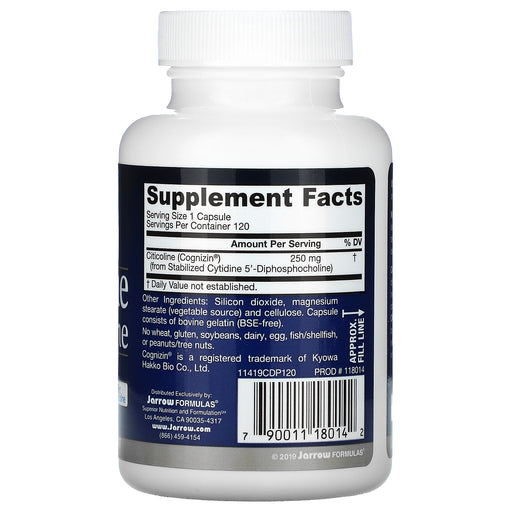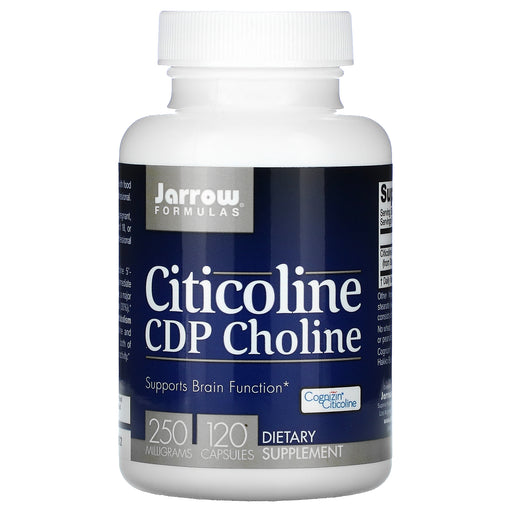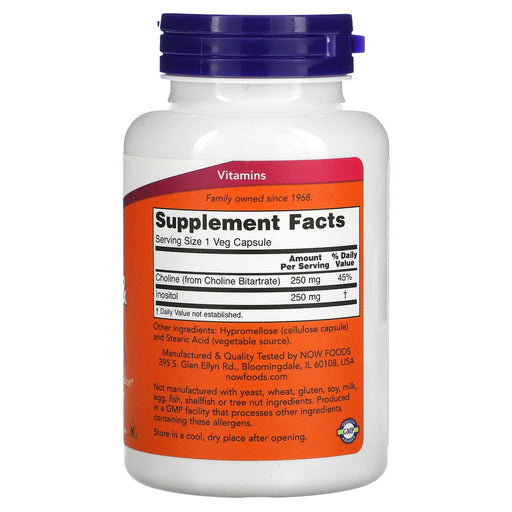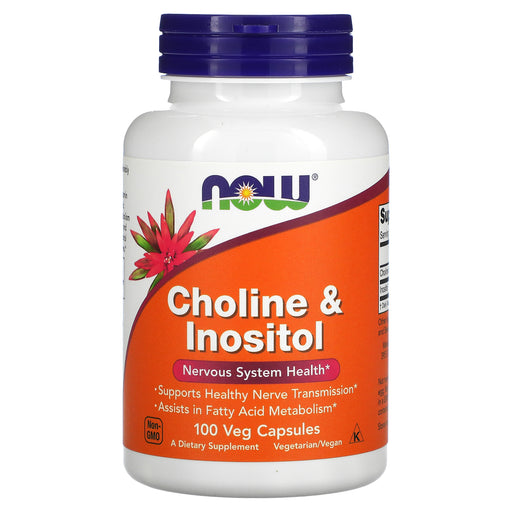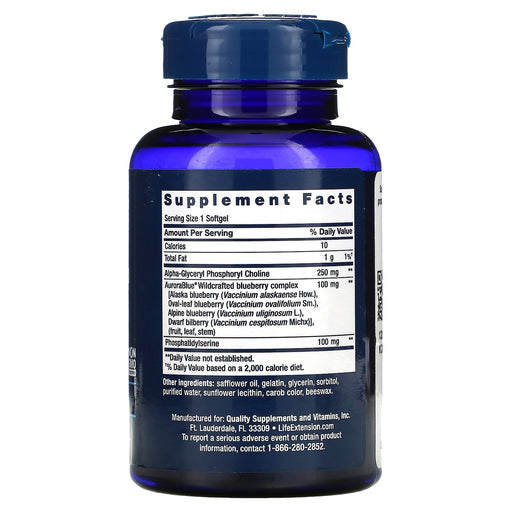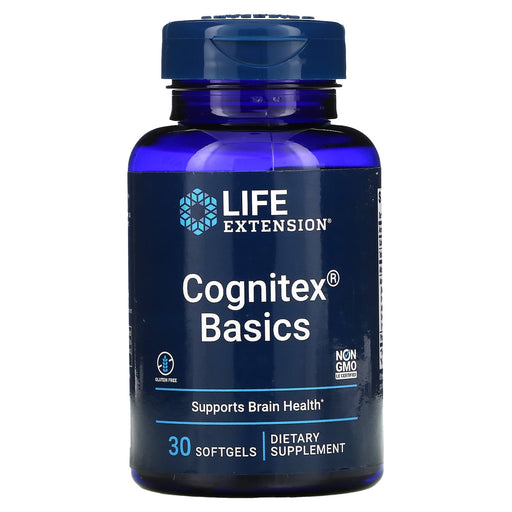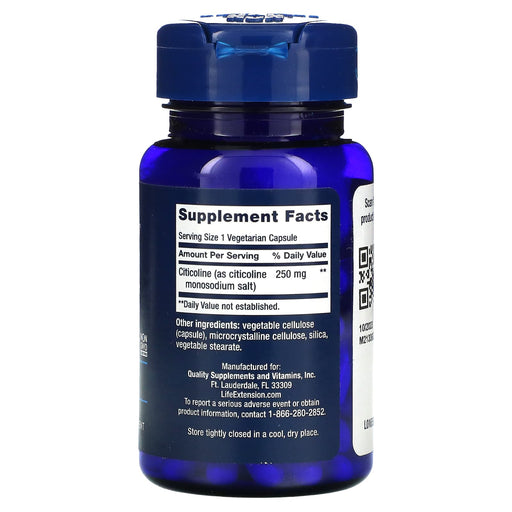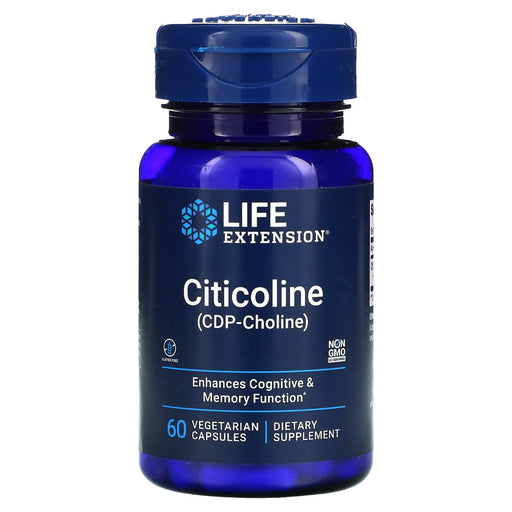
Supporting Brain Health and Cognitive Function with Choline Supplements
In the world of brain health and cognitive performance, choline has emerged as a vital nutrient that plays a crucial role in supporting memory, learning, and overall brain function. This essential nutrient is involved in the production of neurotransmitters and the maintenance of cell membranes, making it a key player in promoting optimal brain health throughout life.
What is Choline?
Choline is an essential nutrient that belongs to the B-vitamin family. It is a precursor to acetylcholine, a neurotransmitter that is critical for memory, learning, and muscle control. Choline also plays a vital role in maintaining the structural integrity of cell membranes, particularly in the brain and nervous system.
While the body can produce small amounts of choline, most people need to obtain it through their diet or supplements to meet their daily requirements. Choline-rich foods include egg yolks, beef liver, and soybeans, but many people may not consume enough of these foods to achieve optimal levels.
Choline supplements are available in various forms, such as choline bitartrate, choline chloride, and alpha-GPC, and are often used to support brain health, cognitive function, and liver health.
Benefits of Choline Supplements
Incorporating choline supplements into your health routine may offer several potential benefits, including:
- Cognitive Function Support: Choline's role in the production of acetylcholine and the maintenance of brain cell membranes may help support memory, learning, and overall cognitive performance.
- Brain Development: Adequate choline intake is crucial for fetal brain development during pregnancy and may help reduce the risk of certain birth defects.
- Liver Health: Choline plays a vital role in liver function, helping to transport fats from the liver and prevent the accumulation of fatty deposits that can lead to liver damage.
- Nervous System Support: By maintaining the structural integrity of cell membranes in the nervous system, choline may help support proper nerve signaling and overall nervous system function.
- Cardiovascular Health: Some studies suggest that adequate choline intake may help support healthy homocysteine levels, which is important for maintaining cardiovascular health.
Choosing the Best Choline Supplement
When selecting a choline supplement, it's essential to choose a high-quality product from a trusted brand. Consider the following factors:
- Form of Choline: Choline supplements are available in various forms, such as choline bitartrate, choline chloride, and alpha-GPC. Alpha-GPC is considered the most bioavailable form and may be particularly beneficial for cognitive function.
- Quality and Purity: Look for supplements manufactured in GMP-certified facilities, free from contaminants and impurities, and third-party tested for purity and potency.
- Appropriate Dosage: Choose supplements that provide an effective daily dose of choline, typically ranging from 250-500 mg per day, depending on your individual needs and health goals.
- Combination Formulas: Some choline supplements may include other brain health-supportive nutrients, such as B vitamins or omega-3 fatty acids, for added cognitive benefits.
- Brand Reputation: Select supplements from reputable brands with a history of producing high-quality, science-backed products and a commitment to transparency and safety.
Tips for Incorporating Choline Supplements into Your Health Routine
To maximize the benefits of choline supplements and support your brain health and cognitive function, consider the following tips:
- Pair with a Balanced Diet: While choline supplements can help ensure adequate intake, they should be used in conjunction with a balanced diet that includes choline-rich foods like eggs, beef liver, and soybeans.
- Consider Timing: Some people may prefer to take choline supplements in the morning or early afternoon to support cognitive function throughout the day.
- Combine with Healthy Lifestyle Habits: Incorporate choline supplements into a lifestyle that includes regular exercise, engaging in mentally stimulating activities, and managing stress for optimal brain health.
- Follow Dosage Instructions: Always adhere to the recommended dosage on the product label, and consult with your healthcare provider before starting any new supplement regimen, especially if you have pre-existing health conditions or are taking medications.
Support Your Brain Health and Cognitive Performance with Choline Supplements
If you're looking for supplement to support your brain health, cognitive function, and overall well-being, choline supplements may be a valuable addition to your daily routine. With its crucial role in neurotransmitter production and cell membrane maintenance, this essential nutrient can help you stay sharp and focused throughout life.
Explore our selection of high-quality choline supplements and witness the potential of this brain-boosting nutrient for yourself. With a commitment to purity, potency, and your individual needs, Health Orchard is here to support you on your journey towards optimal cognitive performance and overall health.
Frequently Asked Questions about Choline
1. What is choline supplement good for?
Choline is an essential nutrient that plays a crucial role in various bodily functions. Choline supplements may be beneficial for:
- Brain health: Choline is a precursor to acetylcholine, a neurotransmitter involved in memory, learning, and muscle control. Adequate choline intake may support cognitive function and brain development.
- Liver health: Choline helps transport fat from the liver, preventing the buildup of fat and reducing the risk of non-alcoholic fatty liver disease.
- Fetal development: Choline is essential for proper fetal brain development and may help reduce the risk of certain birth defects.
- Heart health: Some studies suggest that choline may help lower levels of homocysteine, an amino acid linked to an increased risk of heart disease.
- Athletic performance: Choline may help support endurance and muscle function during exercise by delaying fatigue and enhancing neuromuscular communication.
2. What is the best form of choline to take?
The best form of choline supplement may depend on individual needs and preferences. Some common forms include:
- Choline bitartrate: An economical and widely available form of choline, but it may be less efficiently absorbed compared to other forms.
- Citicoline (CDP-choline): A more bioavailable form of choline that readily crosses the blood-brain barrier, making it a popular choice for cognitive support.
- Alpha-GPC: Another highly bioavailable form of choline that is well-absorbed and may be particularly beneficial for cognitive function and athletic performance.
- Phosphatidylcholine: A form of choline that is incorporated into cell membranes and may support liver health and cognitive function.
Consult a healthcare professional to determine the most appropriate form and dosage of choline based on your individual needs and health status.
3. Who should avoid choline?
While choline is generally considered safe, some individuals should exercise caution or avoid choline supplements:
- People with trimethylaminuria: This rare genetic disorder prevents the body from breaking down trimethylamine, a compound derived from choline. Consuming large amounts of choline can lead to a fishy body odor.
- Individuals with kidney or liver disease: High doses of choline may worsen symptoms or progression of these conditions. Consult a healthcare professional before taking choline supplements.
- People taking certain medications: Choline may interact with some medications, such as anticholinergic drugs or those affecting liver function. Consult a healthcare professional to assess potential interactions.
- Pregnant women: While choline is essential for fetal development, it's best to consult a prenatal care provider for appropriate choline intake through diet or supplements.
- Children: The safety and appropriate dosage of choline supplements for children have not been well-established. Consult a pediatrician before giving choline supplements to children.
4. What are the symptoms of choline deficiency?
Choline deficiency is relatively rare in developed countries, but some signs and symptoms may include:
- Liver dysfunction: Choline is essential for liver health, and a deficiency can lead to fatty liver disease and liver damage.
- Cognitive impairment: Low choline levels may affect brain function, leading to memory problems, confusion, and difficulty concentrating.
- Muscle dysfunction: Choline is involved in neuromuscular communication, and a deficiency may cause muscle aches, weakness, or fatigue.
- Elevated homocysteine levels: Choline helps regulate homocysteine levels, and a deficiency may contribute to increased homocysteine, which is associated with a higher risk of heart disease.
- Reproductive issues: In pregnant women, choline deficiency may increase the risk of certain birth defects and pregnancy complications.
It's important to note that these symptoms can also be caused by other factors, so consult a healthcare professional for proper diagnosis and treatment.
5. Who needs to take choline?
While most people can obtain sufficient choline through a balanced diet, some individuals may benefit from choline supplements:
- Pregnant women: Choline is crucial for fetal brain development, and increased choline needs during pregnancy may not always be met through diet alone.
- Vegans and vegetarians: Animal-based foods like eggs, meat, and dairy are among the best sources of choline. Those following plant-based diets may need to pay extra attention to choline intake.
- People with certain genetic variations: Some individuals have genetic differences that affect their choline metabolism, which may increase their choline requirements.
- Individuals with liver disorders: Choline plays a vital role in liver health, and those with liver conditions like non-alcoholic fatty liver disease may benefit from choline supplementation.
- Athletes or people engaging in intense physical activity: Choline may help support endurance and muscle function during exercise.
However, it's always best to consult a healthcare professional before starting any supplement regimen to determine if choline supplementation is necessary and appropriate for your individual needs.
6. Can you take choline every day?
Yes, choline can be taken daily as part of a balanced diet or supplement regimen. The recommended daily intakes (RDIs) for choline vary by age and sex:
- Adult men: 550 mg/day
- Adult women: 425 mg/day
- Pregnant women: 450 mg/day
- Breastfeeding women: 550 mg/day
Consuming choline within these recommended ranges is generally considered safe and beneficial for overall health. However, it's important not to exceed the tolerable upper intake level (UL) of 3,500 mg/day for adults, as excessive choline intake may cause side effects like fishy body odor, digestive discomfort, and potential liver damage.


